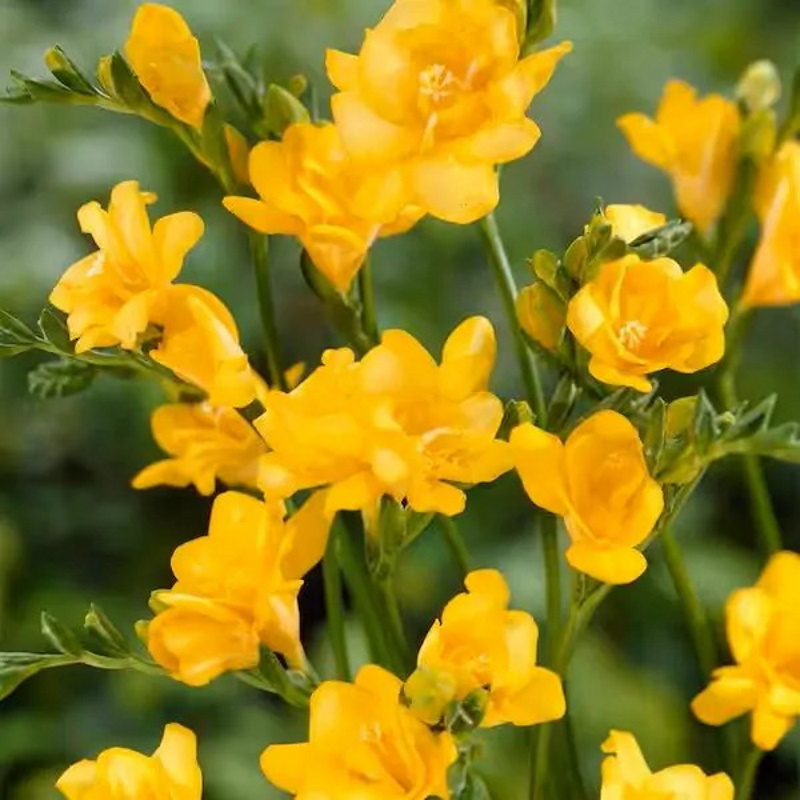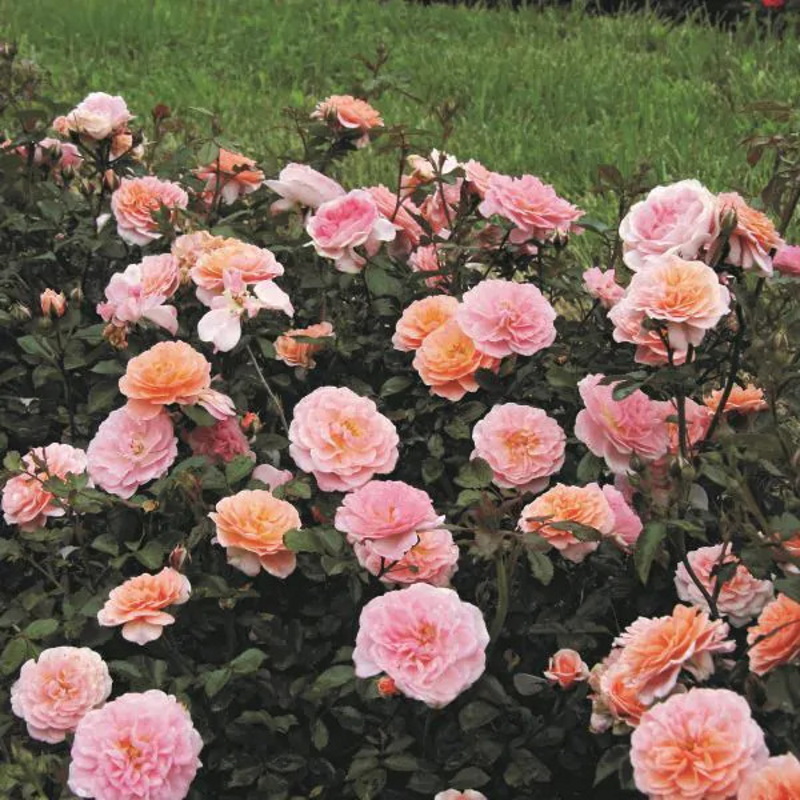Are tulips toxic to cats? Experts warn to keep these springtime favorites away from felines
The furrier members of the family can become unwell if they choose to snack on these bright blooms
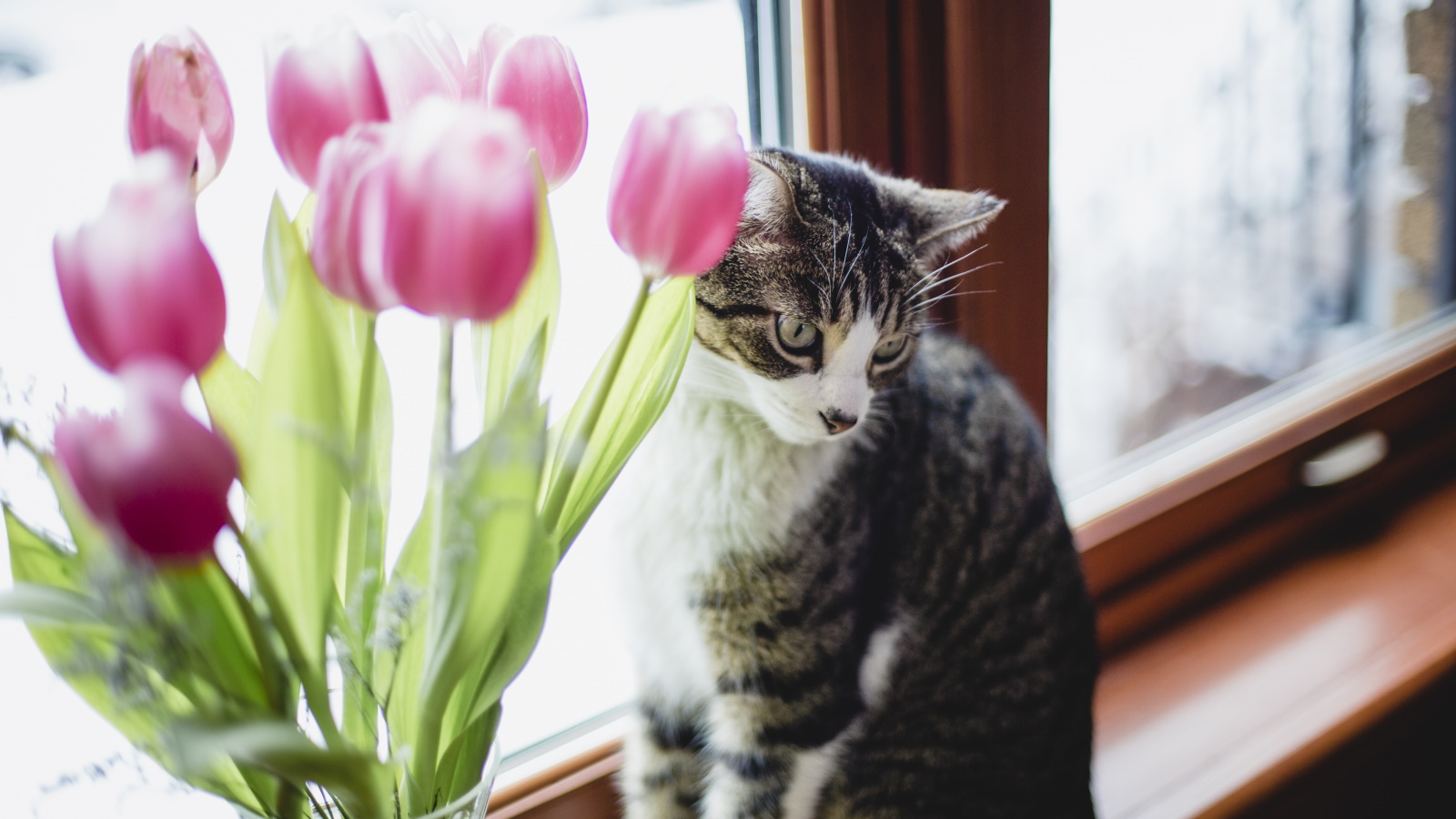

Choosing which flowers to grow in your yard for a colorful spring display can be tricky when there are so many wonderful choices available. But you should always take into consideration your lifestyle, which means being away of plants that could cause harm to your pets.
While there are many cat safe indoor plants, unfortunately popular springtime tulips are among the plants toxic to cats. Whether you're growing tulips indoors or planning a cut flower garden that includes these blooms, it's wise to protect your cats from them.
We've spoken to experts to find out more about the toxicity of tulips to cats and what to do if your cat has eaten them.
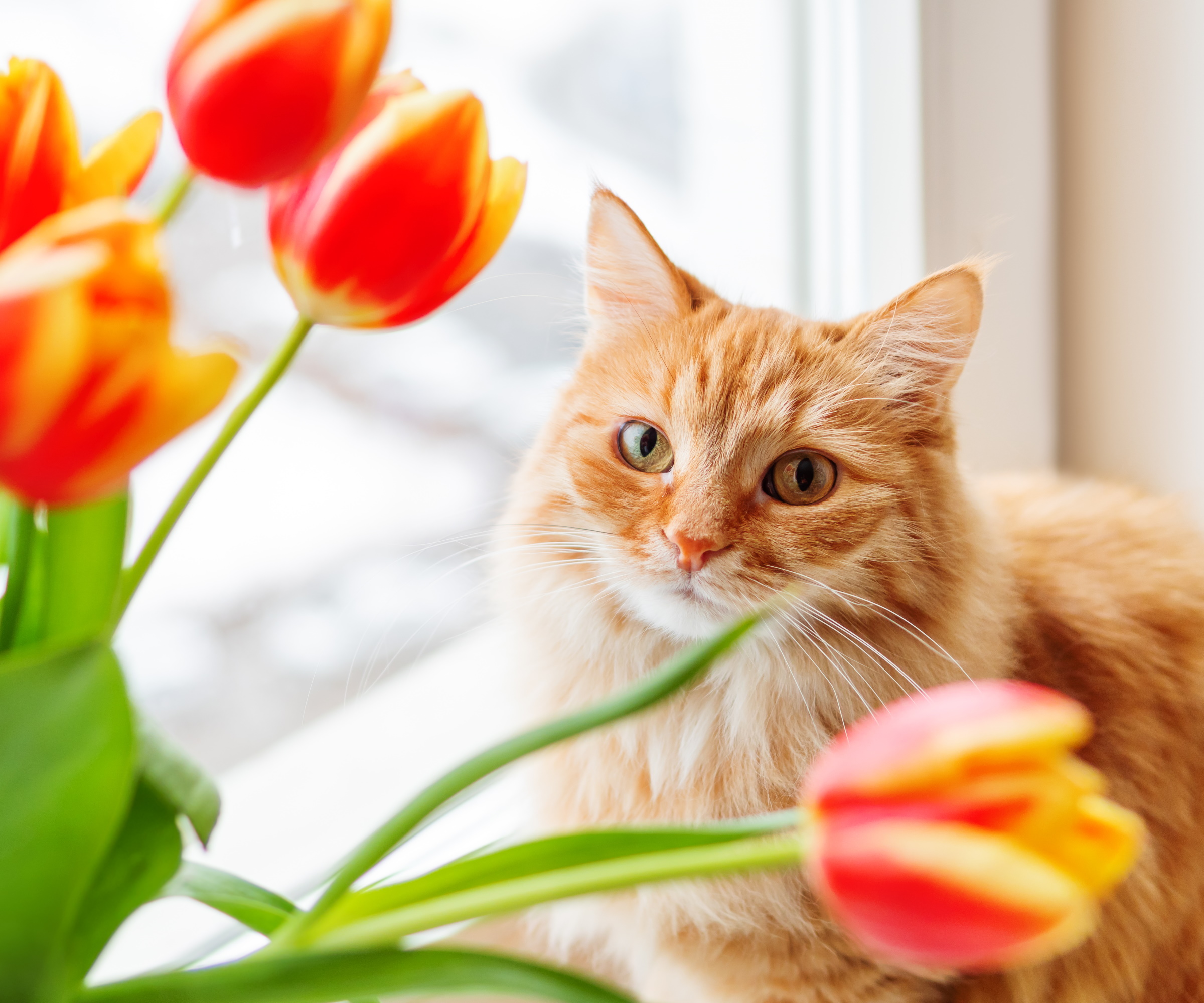
Are tulips toxic to cats?
In short, yes. Just like orchids being toxic to cats, tulips are toxic to cats if ingested and can cause your felines to become unwell. But don't worry, we've asked experts how toxic they are and what you should do if your cat takes a bite.
What happens if your cat eats a tulip?
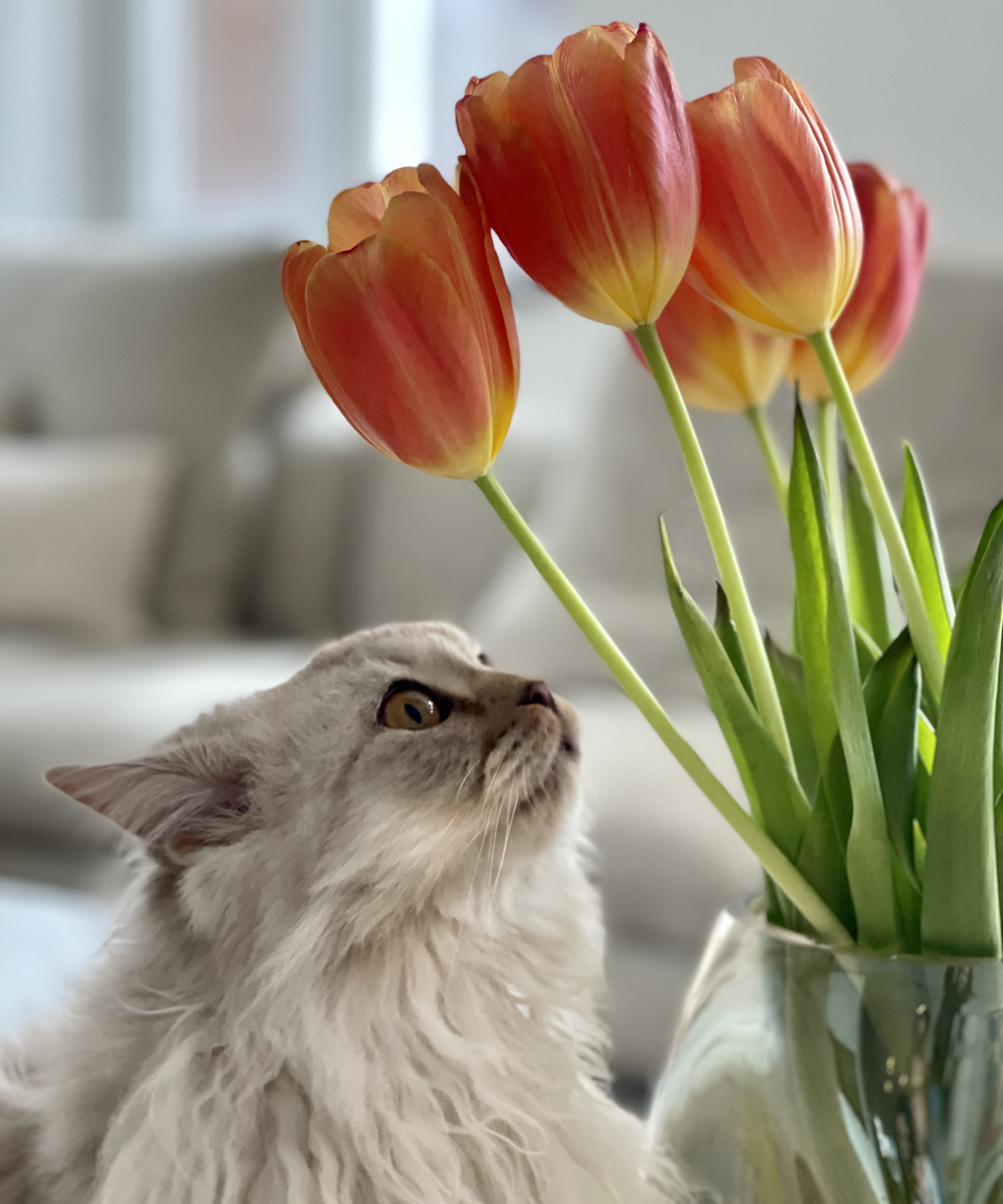
When plants are considered unsafe for pets, it's a sign that they have toxins that will cause illness to your pet if ingested. The harmful toxin found in tulips is known as tuliposides.
'Tulips contain toxic organic compounds which are concentrated in the bulbs. They contain tuliposides A and B, which when ingested by cats can cause hypersalivation, vomiting and diarrhea,' says Dr. Amy Attas, veterinarian and founder of City Pets Vets.
'If a large quantities are ingested, these compounds can drop blood pressure, lead to central nervous system problems and cause cardiac changes,' she adds.
While the toxins are concentrated in the bulbs, ingesting stems, leaves and flowers can also cause cats to experience the above symptoms.
'The bulbs also contain calcium oxalates which are also associated with gastro-intestinal discomfort, lethargy and when consumed in large quantities central nervous system signs,' says Dr. Attas.

Dr. Amy is the founder of City Pets Vets, a veterinary house call service for dogs and cats living, working or visiting in Manhattan. A graduate of Barnard College, she attended the University of Pennsylvania where she received both a Master’s Degree in Animal Behavior and her veterinary degree. Following her graduation in 1987, she completed an internship in medicine and surgery at the Animal Medical Center in Manhattan.
What should you do if your cat eats a tulip?
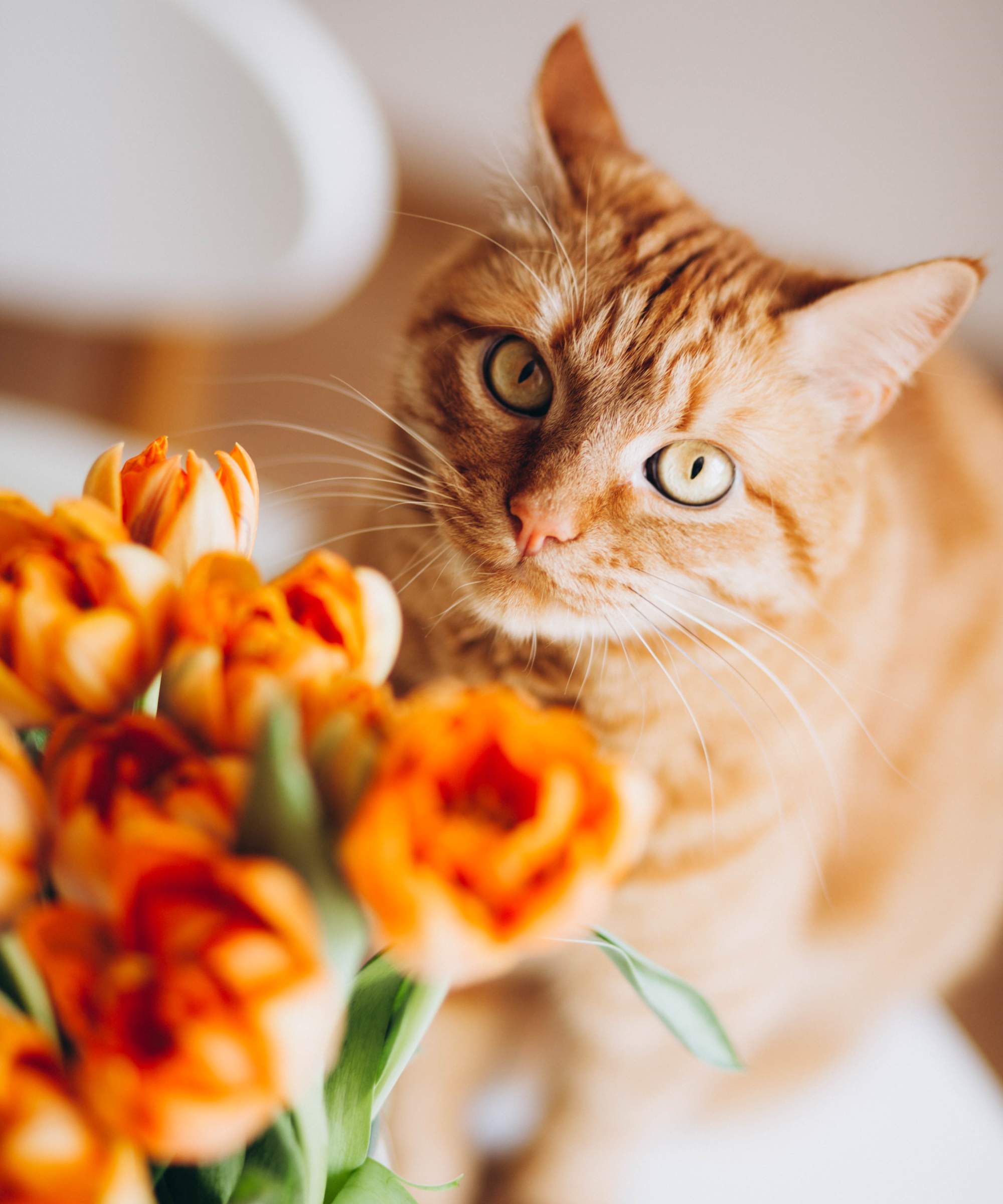
If you notice your cat showing symptoms of eating a tulip or you see that they have ingested these flowers, it's important to seek medical attention.
Dr. Amy Attas notes not to panic if your cat has only eaten the flowers and leaves of the tulip. 'The flowers and leaves are not that dangerous. The real danger lies in the bulb,' she says. 'Observe the cat carefully for any signs of drooling, gastro-intestinal issues such as vomiting or diarrhea, lethargy, changes in breathing or signs of central nervous system problems such as tremors. If any of these signs are present, it is best to seek quick veterinary care,' Dr. Amy Attas adds.
'Gently remove any piece of tulip from your cat’s mouth, if it’s possible to do so without causing further distress,' says Dr. Sam Meisler, veterinarian and founder of Pet Well Clinic.
'Contact your veterinarian immediately if your cat exhibits any signs of toxicity. Your veterinarian may administer treatments such as inducing vomiting, giving activated charcoal to absorb toxins or provide supportive care like fluids to help reduce dehydration and flush the toxins from the system,' he adds.
You should always get in touch with veterinarian professionals to manage potential poisoning of cats. You can also contact ASPCA Poison Control for help and advice.

Dr. Meisler is a veterinarian and founder of Pet Well Clinic. He began Pet Well Clinic in 2009 to provide affordable and convenient care for dog and cat owners. With a long career in veterinary medicine, Dr. Meisler helps pet owners and advises on pet care.
Discover cat-friendly flowers online
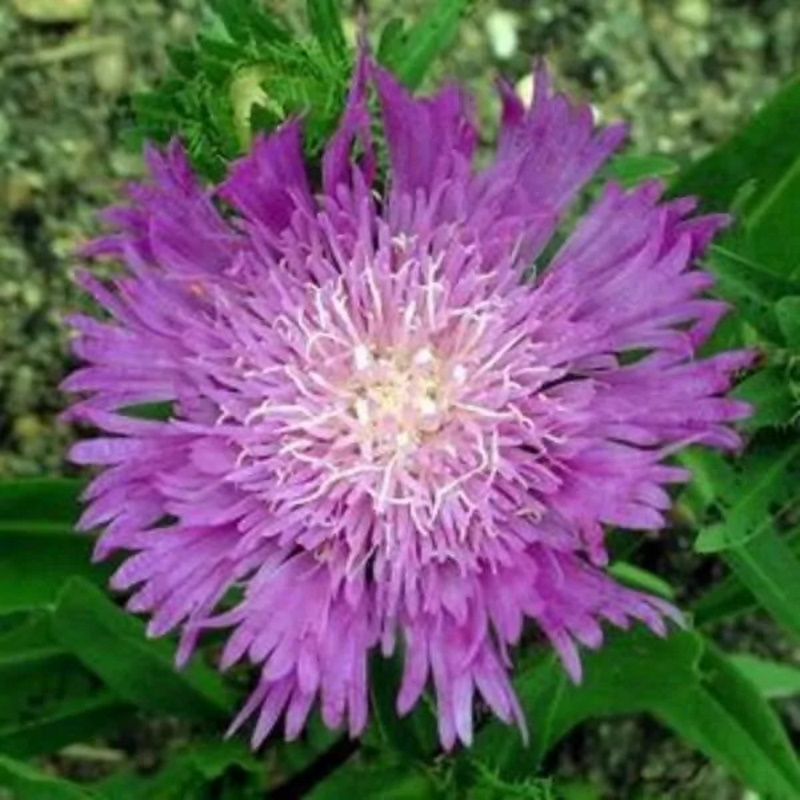
These beautiful asters are a true Royal Purple color. They bloom from late summer through fall and make beautiful cut flowers.
FAQs
How do you keep cats safe from tulips?
To keep your cat safe from tulips, you should discourage them from going near the flowers. 'You can place deterrents such as coffee grounds, cayenne pepper or commercial cat repellents around the area where the tulips are planted which may keep cats away,' says Dr. Amy Attas, veterinarian and founder of City Pets Vets.
You can also avoid planting tulips in places accessible to your cat, and keep indoor vases of tulips out of reach.
'Provide plenty of other cat-friendly stimulation such as cat trees, toys and scratch posts to keep them entertained and away from plants,' says Dr. Sam Meisler, veterinarian and founder of Pet Well Clinic. 'Implementing these strategies can help keep your cat safe from tulips and other harmful plants, reducing the risk of poisoning while ensuring a cat safe environment,' he adds.
Unfortunately, tulips are among the plants toxic to cats and will cause them to become unwell if ingested. It's best to keep tulips out of reach of your cat and seek medical attention if you think they have eaten these flowers.
It's important to also make yourself aware of other plants that can cause harm, such as hydrangeas which are toxic to cats and rubber trees which are toxic to cats.
Sign up to the Homes & Gardens newsletter
Design expertise in your inbox – from inspiring decorating ideas and beautiful celebrity homes to practical gardening advice and shopping round-ups.

Tenielle is a Gardens News Writer at Homes & Gardens. She holds a qualification in MA Magazine Journalism and has over six years of journalistic experience. Before coming to Homes & Gardens, Tenielle was in the editorial department at the Royal Horticultural Society and worked on The Garden magazine. As our in-house houseplant expert, Tenielle writes on a range of solutions to houseplant problems, as well as other 'how to' guides, inspiring garden projects, and the latest gardening news. When she isn't writing, Tenielle can be found propagating her ever-growing collection of indoor plants, helping others overcome common houseplant pests and diseases, volunteering at a local gardening club, and attending gardening workshops, like a composting masterclass.
-
 This is the single best upright vacuum we've ever tested – and it's on offer with $130 off at Shark for a limited time only
This is the single best upright vacuum we've ever tested – and it's on offer with $130 off at Shark for a limited time onlyYou won't want to miss this one
By Dan Fauzi
-
 Nate Berkus says slipcovered sofas are back on trend – and I just found a way to create this designer-approved laid-back look from just $86
Nate Berkus says slipcovered sofas are back on trend – and I just found a way to create this designer-approved laid-back look from just $86This classic style is making a strong comeback, but did you know you don't have to buy a whole new couch to get this Nate-approved look?
By Eleanor Richardson
